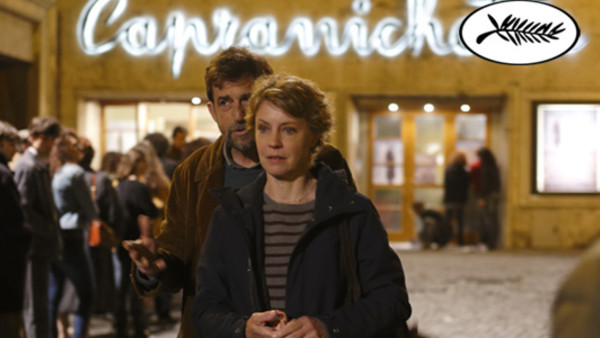Cannes 2015: My Mother Review - More Funny Than Poignant
Come for the dying relative, stay for John Turturro.

Rating: ★★★
Out of all the films screened In Competition so far, Mia Madre is the mostly typically Cannes; it's directed by a former Palme d'Or winner, deals with a very internal subject; takes a look at auteur filmmaking; and, biggest of all, is self-inspired.
The film follows director Margherita (played by Margherita Buy), who's struggling to balance the strained production of her latest film and caring for her dying mother. This brings with it a teetering mountain of life issues; at work she's lumbered with a Hollywood actor who can't remember his Italian lines, and when he does they're from the wrong scene; at home she's got all the stress intrinsic to caring for a sick parent, and is also subconsciously battling her brother to be the most caring. That final irritation reveals the difficult character study the film's presenting; the central thread isn't one of a person overwhelmed by their life, but someone who makes their own problems themselves.
There's a danger such a story could be a rather self-indulgent exercise, but, even when things don't work, it's not because of the film going up its own !*$%. And even if it did, it's not like it hasn't set itself up in such a manner - it's directed by Nanni Moretti, who has a history of this, and is even explicitly stated in that self-referential title.
On the topic of the title, it's odd that the part of the film that comes across as the least impactful is the central relationship between mother and daughter. That's not saying it's poorly acted or in anyway misjudged, it's just nothing novel and could feasibly have been swapped out by any other personal tragedy. Once the film's over and everything's gone in the direction you expect to, it doesn't stick in the mind or the heart.
The narrative balance is still impressive. Laugh-out-loud behind-the-scenes observations and terminal illness don't typically go hand-in-hand, so it's very much to Moretti's credit that the opposite halves only ever accentuate each other, in the process stopping any lesser parts from having an overly detrimental impact on the whole.
So it is the filmmaking side that's the more instinctively rewarding (for better or worse). Minutely observed incidents feel real and well-aimed, although never too far to turn it into a satire. The highlight is John Turturro as the pompous Hollywood actor brought into his homeland to act in a film with a language he doesn't understand. Every moment he's on screen in building to a joke and not a single one misses (the best include a fear of Kevin Spacey and a delusion of having worked with Kubrick). His arc runs parallel to the director's, and it's actually through him that the two sides to the story thematically meet, giving a character that could have just been perfectly cast comic relief a purposeful part.
Directorial relationship is prominent in the film. Margherita repeatedly tells her actors to stand alongside their characters, a hand-wavy direction only just a step up from "faster and more intense" that allows director, actor, writer and producer, Moretti to mock any impressions of pretentiousness, but also serves as the best summary of My Mother; honest and real, if not quite on point.
Keep up with all of our Cannes 2015 coverage on the official page here.